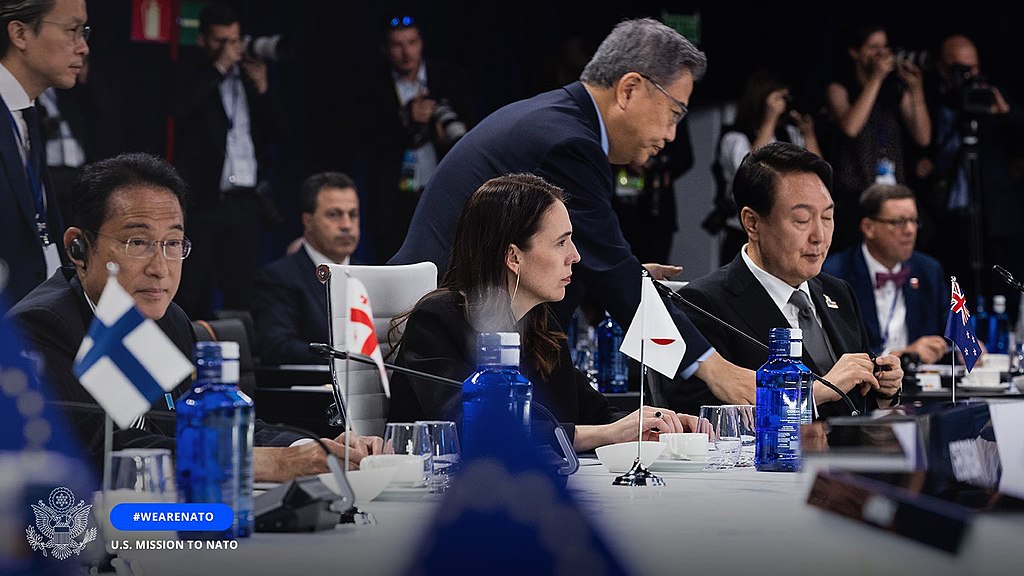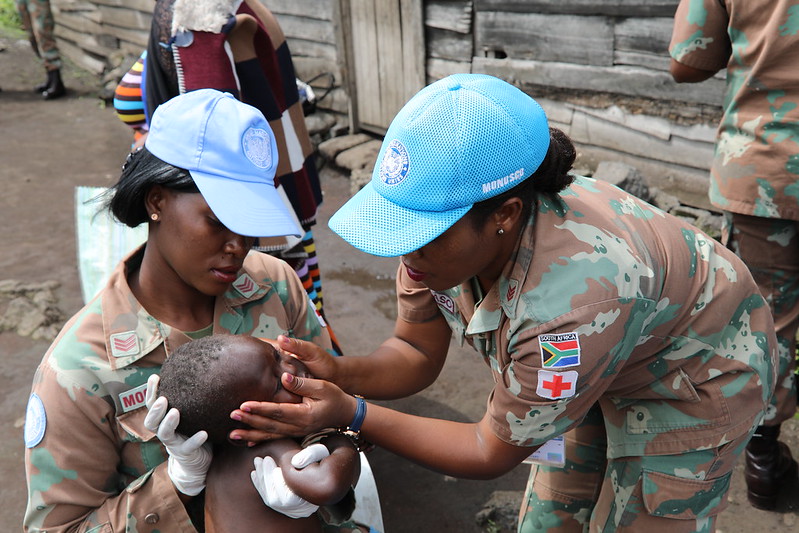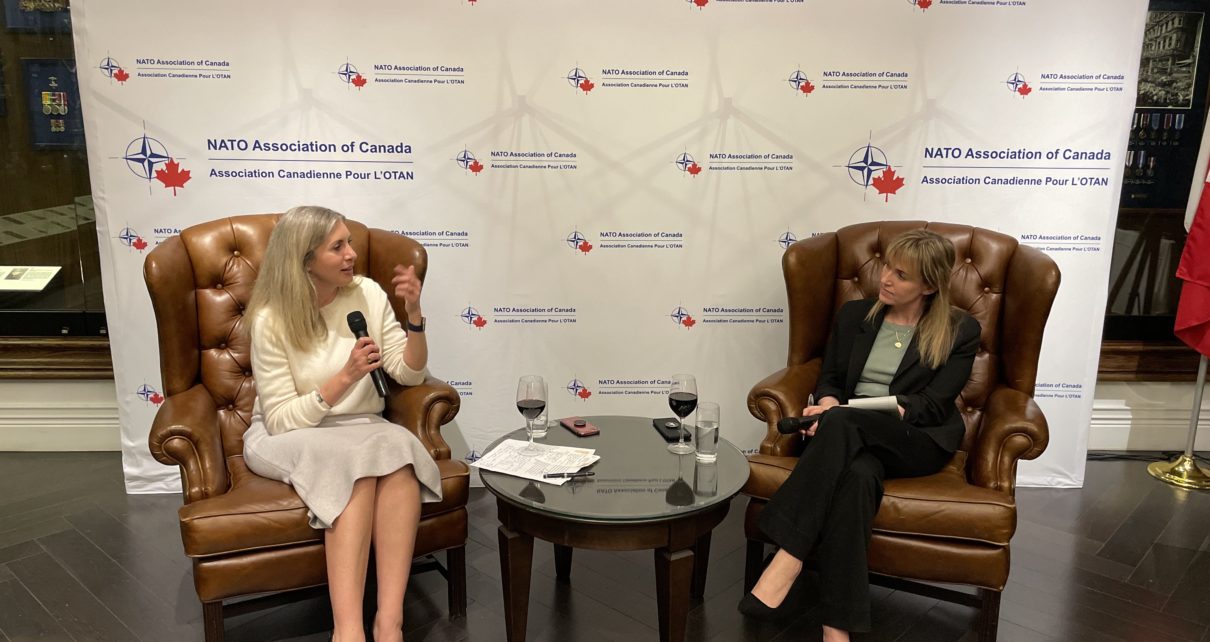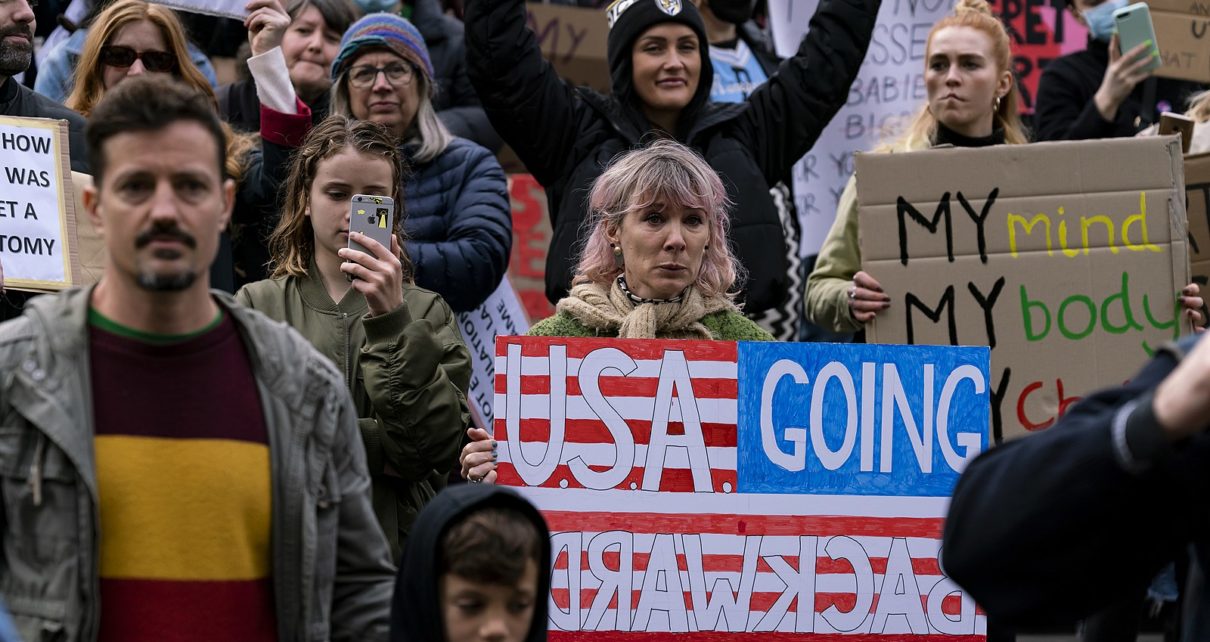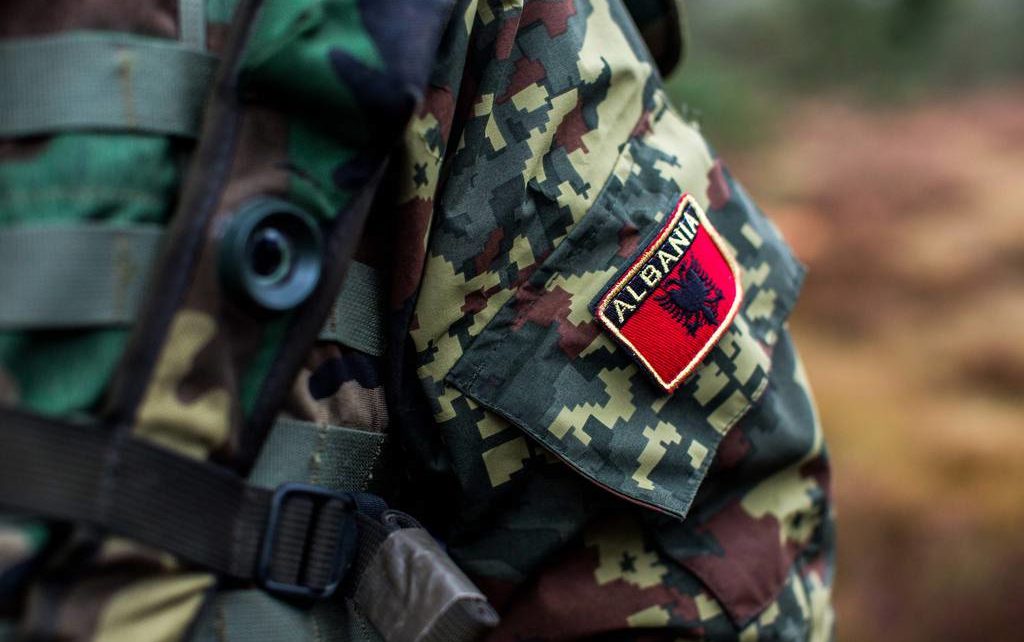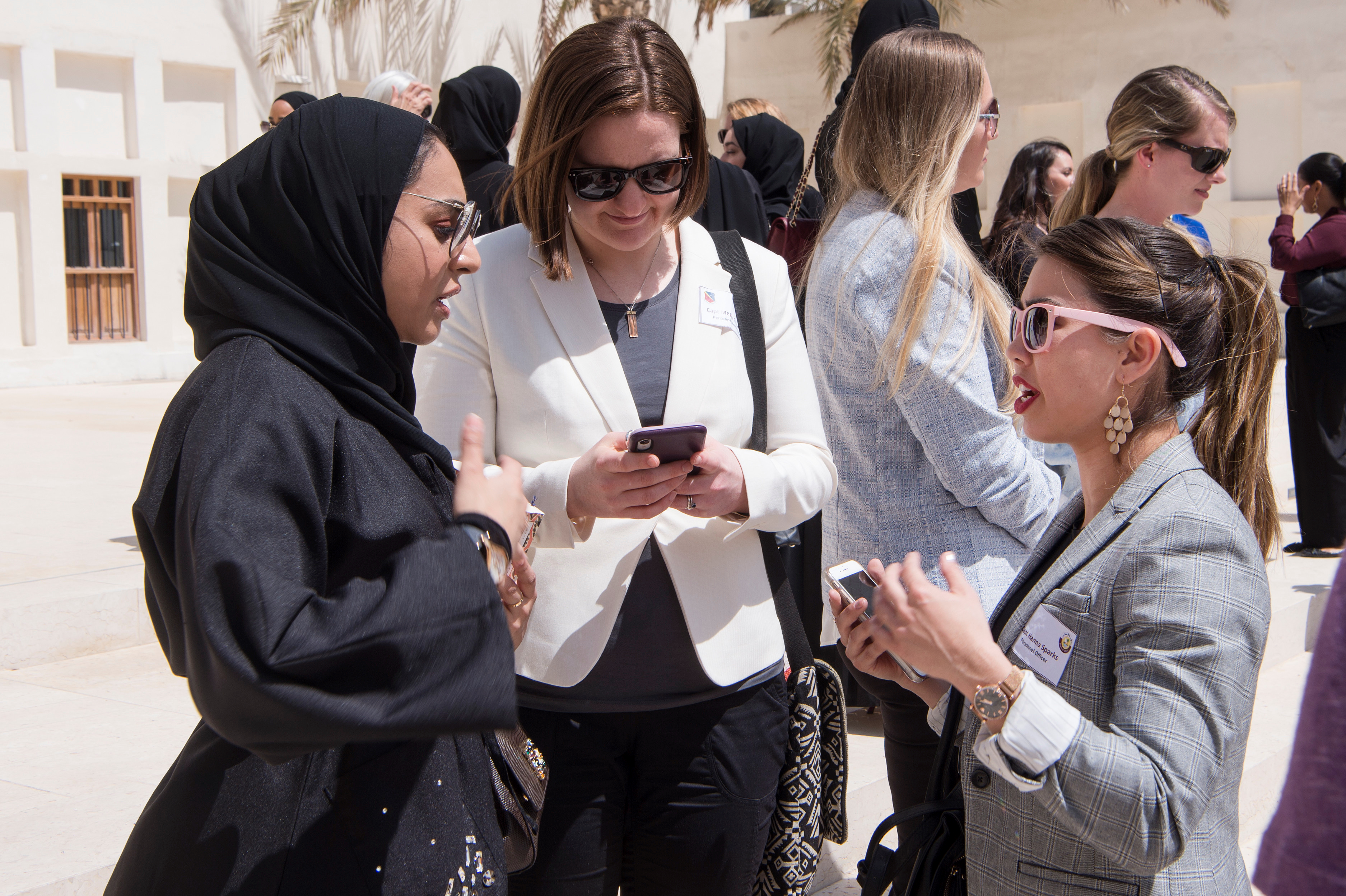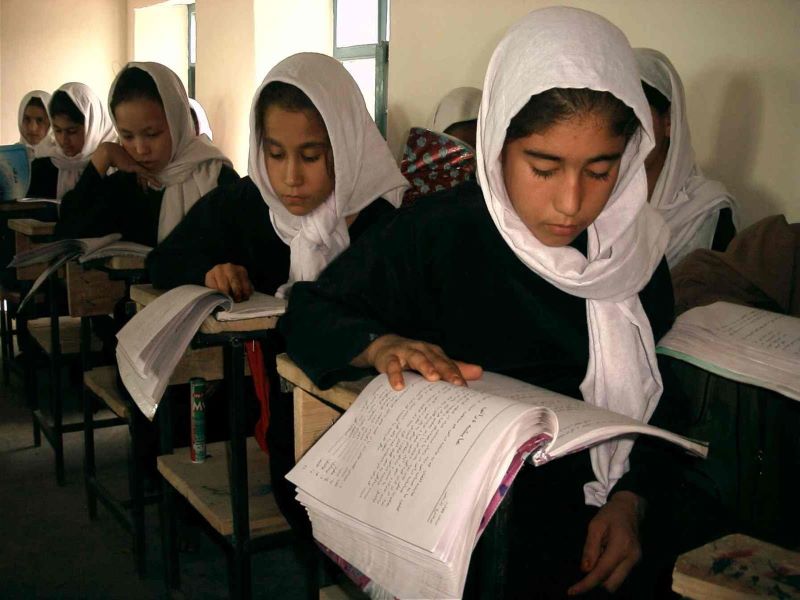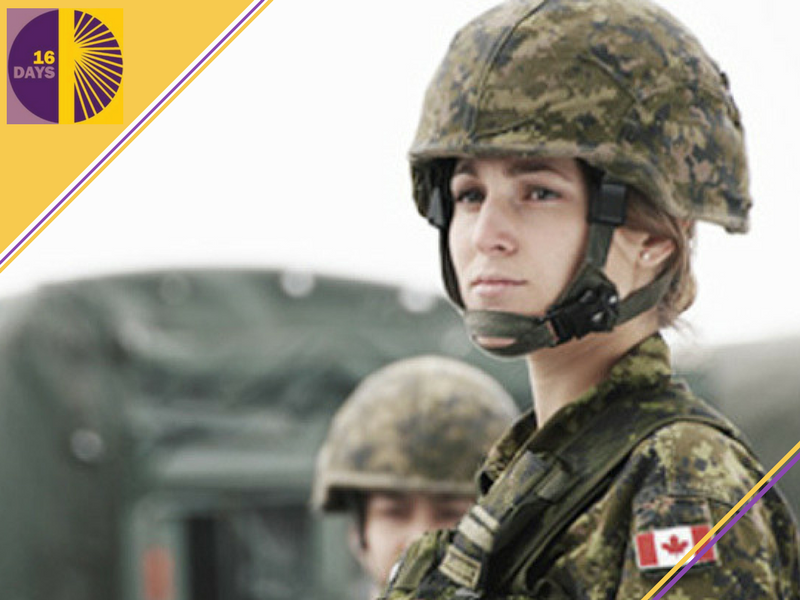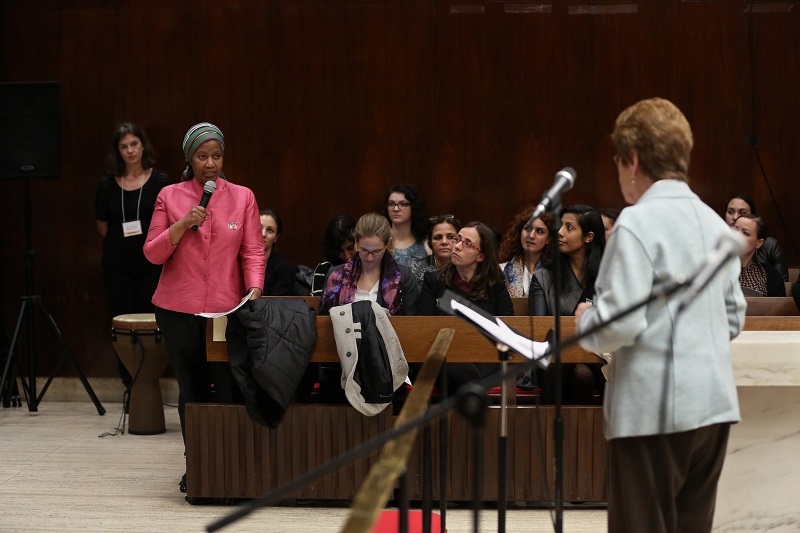If you were to ask any gender equality organization, coalition, collective or feminist action group, most would agree that there needs to be more female leaders. Further, there is a dire need to have more women in leadership as heads of state, Presidents, and in high-level political positions – in 2018, roughly only 23.8% of Read More…
Tag: Women peace and security
The Power of Women in Peacekeeping and its Promise for Security
It’s no secret that much of the scope of international relations, especially the security sector, is a world dominated by men. In high-level political forums, military zones, negotiation processes – women are still largely outnumbered by men in these spaces. However, the power of women in peacekeeping and peace operations cannot go understated. Women who Read More…
The NATO Association of Canada Sponsors a Book Launch
On April 13, the NATO Association of Canada sponsored a book launch forDeploying Feminism: The Role of Gender in NATO Military Operations, the most recent book by Dr. Stéfanie von Hlatky, Associate Professor, Queen’s University, at the Royal Canadian Military Institute in Toronto. Dr. Madison Schramm, Assistant Professor, University of Toronto, moderated the discussion. The Read More…
The International Implications of Roe v. Wade’s Overturn
The international community has responded to the US Supreme Courts’ overturn of Roe v. Wade. In this article, Jordan McEwen highlights international concerns, specifically for human rights and democracy.
Examining the Setbacks in Women Leadership in the Context of the Albanian Armed Forces
Women in positions of leadership has been a subject of debate recently in the Albanian Armed Forces. However, a new political improvement was the commitment to the adoption of the UN resolution on Women Peace and Security, which served as the benchmark for the forthcoming Albanian National Action Plan (ANAP) Despite the ongoing progress made in ten years, the figures on paper differ from reality.
The Importance of Women’s Inclusion in Counterterrorism
Security-related fields across the international community continue to perpetrate gendered ideals which prohibit women from contributing, specifically in counterterrorism. The existing gender bias associates women in security with roles of peacekeeping, while inherently placing them on the periphery in the counterterrorism sector. In 2014, the United Nations Secretary General announced that members should “consider the Read More…
In Afghanistan, a Lack of Female Involvement Points to Weaknesses in the Current Peace Talks
In this article David Lazzam reflects on the Afghan peace talks. As the negotiations continue, optimism is belayed by concerns over the potential problems that might arise from the male-dominated negotiations.
Understanding Canada and Women, Peace and Security
The Women, Peace and Security Agenda started with a single resolution. It evolved into an entire mandate that inspired the development of egalitarian National Action Plans. Take a look at this infograph to learn what Canada does.
UNCSW61 & North Korean Refugee Women: A Conversation with Betsy Kawamura (Part I)
I had the pleasure to speak with Betsy Kawamura, founder of Women4NonViolence in Peace + Conflict Zones – a platform to gather and support survivors of sexual violence in East Asia – and co-founder of the Working Group for North Korean Women at the North Korea Freedom Coalition. The group’s goal is to mainstream the Read More…
Measuring State Commitments to Women, Peace & Security: Launch of a new WPS scorecard
In this article, Jenny Yang analyzes Women’s International League for Peace and Freedom (WILPF) newly-launched scorecard to measure implementation of the Women, Peace, and Security (WPS) Agenda by the Permanent members of the UN Security Council (P5).

